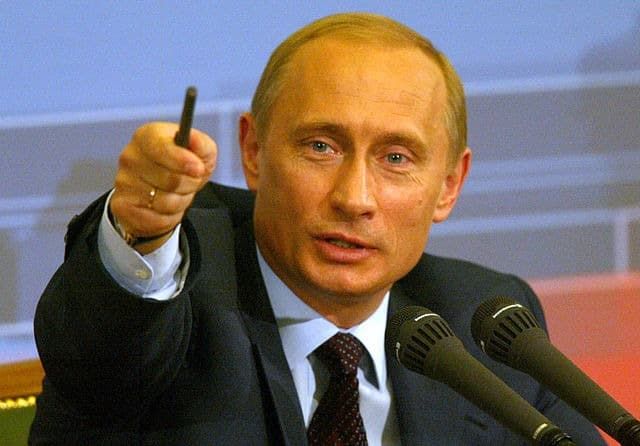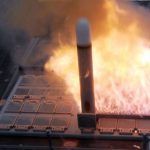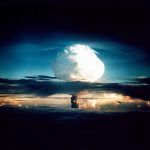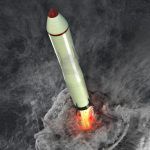What to do about Russian belligerence
By Pavel Podvig | January 16, 2015

Last year was difficult for nuclear disarmament. Russia’s move to annex Crimea, and the thinly veiled invasion in the Eastern Ukraine that followed, revived old worries about stability in Europe and fears of a return to the confrontation that the end of the Cold War seemed to have left firmly in the past. As these crises unfolded, the United States formally accused Russia of violating the terms of the Intermediate-Range Nuclear Forces Treaty, or INF (which played a key role in bringing the Cold War to an end) by testing a ground-launched cruise missile that could, if deployed, have most European countries within its range. Although news of the treaty violation appeared long before the current crisis put Ukraine on the map—and is a completely unrelated development—it is quite understandable that many people took it to mean that Russia fully intends to reassert itself as a country that the West has to reckon with militarily as well as politically.
The logic behind Russia’s actions seems to have escaped everyone outside of the Kremlin walls, but their effect was nonetheless quite real: nuclear weapons are back in the conversation about European security. The Ukrainian crisis, in fact, has had a rather strong nuclear dimension from the very beginning. Russia pointedly did not shy away from reminding the world that it is the only country that could turn the United States “into a radioactive ash” and President Vladimir Putin painted the entire crisis as part of the Western effort to tear out the nuclear teeth and claws of the Russian bear.
Although the West’s response to Russia’s actions was fairly resolute, measures that could have provoked a military escalation of the conflict were carefully avoided, as no one in the West wanted to test whether the Kremlin was willing to be the actual madman from the madman theory of nuclear deterrence that dates back to President Richard Nixon’s ploy to convince the North Vietnamese that he was just crazy enough to push the nuclear button. It helped that Ukraine is not a member of NATO and that the terms of the Budapest memorandum that gave Ukraine assurances of territorial integrity are somewhat vague. But a critical question remained unresolved: What if Russia would keep using its nuclear cover to meddle in other “near abroad” countries, such as Estonia, which has a large Russian-speaking population?
NATO insists that its Article V mutual defense guarantee is as strong as ever, but it is possible to imagine scenarios in which a Russian nuclear threat, even if implicit, would give pause to quite a few countries. Should Russia start deploying nuclear-capable intermediate-range ballistic and cruise missiles that could hold European capitals at risk, that pause might become significantly longer.
As history is known to repeat itself, NATO has reached for solutions that seem to have worked in the past—strengthening the military structure of the alliance and boosting the role of nuclear weapons. Although NATO is not yet at the point of moving nuclear weapons into the territory of its Eastern members, in October 2014 Polish aircraft did participate in a nuclear exercise in Italy, and nuclear-capable bombers are now part of the NATO temporary rotational force in the Baltic States, Poland, and Romania. Discussing US concerns about the INF treaty, a Pentagon representative suggested that the United States could consider deployment of its own intermediate-range missiles in Europe should Russia refuse to comply with the treaty limits. As documented by Hans M. Kristensen, director of the Nuclear Information Project with the Federation of American Scientists, Europe is already in a cycle of military deployments that involve a lot of nuclear-capable, if not yet nuclear-weapon-carrying, systems.
Not only is this cycle dangerous, it is also unnecessary and counterproductive. The challenge to European security posed by Russia’s belligerence is not, in fact, military in nature. The main reason Russia was able to annex Crimea and create havoc in Eastern Ukraine was not a lack of military assistance to Ukraine or the vague language of the Budapest memorandum. Rather, Russia was able to take advantage of a weak state at a moment of severe political crisis and to exploit the discontent created by decades of bad government. It may be too late for Ukraine, but future crises of this kind would be most reliably averted by strengthening governance and making sure that citizens have effective, legitimate ways to deal with their grievances. The experience of Eastern Ukraine, in fact, showed just that: The “little green men”—armed men in uniform without insignia—failed to take hold in the regions where citizens had some trust in the local authorities.
The nuclear dimension of the crisis is even more important. Although it may seem intuitively clear that it would take nuclear weapons to confront a belligerent nuclear-armed power, one cannot help but notice that so far only Russia has benefited from the fact that the danger of nuclear escalation, however small, was always present in the background. The situation would be quite different if there were a strong international norm against bringing nuclear weapons into a dispute in Europe (and not just in Europe, but that is a subject for another column). Of course, such a norm is difficult to establish and impossible to enforce, but that does not mean that it is not a worthwhile goal. The Kremlin’s current confidence in its coercive power rests in no small part on the notion that nuclear weapons have a legitimate role in conflict management—and on the seemingly widespread acceptance of this role. Taking nuclear weapons out of Europe, literally as well as symbolically, would erode this power probably more than anything else.
Together, we make the world safer.
The Bulletin elevates expert voices above the noise. But as an independent nonprofit organization, our operations depend on the support of readers like you. Help us continue to deliver quality journalism that holds leaders accountable. Your support of our work at any level is important. In return, we promise our coverage will be understandable, influential, vigilant, solution-oriented, and fair-minded. Together we can make a difference.
Share: [addthis tool="addthis_inline_share_toolbox"]














